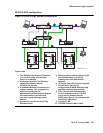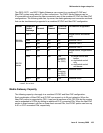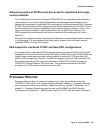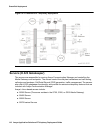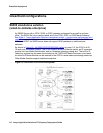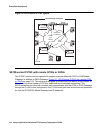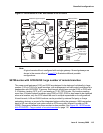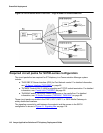
Issue 6 January 2008 109
Greenfield deployment
This chapter explains how to implement Avaya Application Solutions components in a
Greenfield site. A Greenfield site is a business or an organization that does not have an existing
communication system. Most Greenfield systems are deployed into new businesses and
organizations, and these systems tend to be smaller in size. Occasionally, an established large
organization may completely remove its existing system and install a new system. In these
cases, the incumbent system is usually a leased service, such as a centrex service from a
telephony service provider.
In general, most organizations want to protect their investment in their PBX communications
system. Avaya provides ways for our circuit switched PBX customers to evolve from circuit
switched systems to IP-enabled systems. This solution provides most of the advantages of IP
Telephony with minimal equipment upgrades to an enterprise’s existing PBX. The evolution
approach is described in Evolution from circuit-switched to IP
on page 119.
Components needed for Greenfield deployment
In a Greenfield deployment, the primary connection medium is IP. To provide the greatest
flexibility and the lowest costs for a converged solution, most endpoints should be IP
Telephones or IP Softphones. A mixture of IP endpoints and circuit-switched endpoints places
increased demand on Media Processor resources, and thus increases the cost of the
deployment. Intersite communications should also be IP based. This can be done either through
direct connections between IP Telephones or through IP trunks. Circuit-switched or TDM-based
communications should be kept to a minimum. The primary TDM connections should be for
PSTN access, where necessary, and connections to any analog telephones, modems, or fax
machines that exist (Figure 34:
A Greenfield IP Telephony deployment on page 110).
In a Greenfield deployment, the emphasis is on IP Telephony. Multi-Connect systems that
emphasize TDM connections are not generally recommended, except in special circumstances.
Those circumstances include when there is a need for:
● Critical reliability
● Significant analog or DCP endpoints



